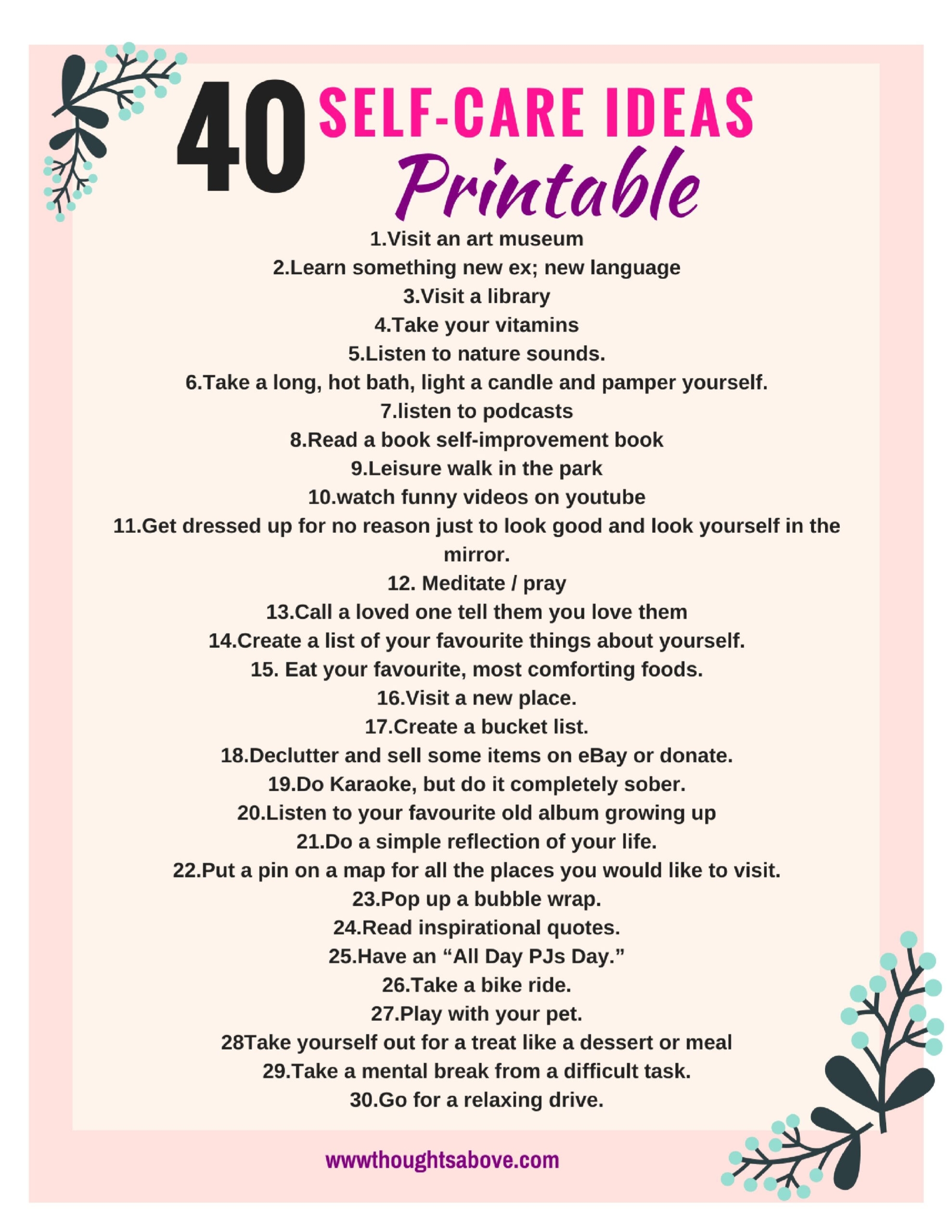Self-care is essential for maintaining good mental health and overall well-being. It is important for adults to take the time to prioritize their own needs and practice self-care regularly. One effective way to do this is by using self-care worksheets, which can help individuals identify their needs, set goals, and track their progress.
Self-care worksheets for adults are available in PDF format, making them easily accessible and convenient to use. These worksheets cover a wide range of topics, from self-reflection and mindfulness to stress management and self-care routines. They provide a structured framework for individuals to explore their thoughts and feelings, set intentions, and develop healthy habits.
One common type of self-care worksheet is a daily self-care checklist, which allows individuals to list out activities they can do each day to take care of themselves. This may include tasks such as getting enough sleep, eating nutritious meals, exercising, practicing gratitude, and engaging in activities that bring joy and relaxation.
Another helpful self-care worksheet is a self-care wheel, which breaks down different areas of self-care such as physical, emotional, social, and spiritual well-being. Individuals can assess how well they are currently meeting their needs in each of these areas and create a plan to improve any areas that may be lacking.
Self-care worksheets can also be used for specific purposes, such as managing anxiety or practicing self-compassion. These worksheets may include prompts for journaling, reflection exercises, and practical tips for coping with difficult emotions or situations.
In addition to providing guidance and structure, self-care worksheets can also serve as a visual reminder of the importance of self-care. By filling out these worksheets regularly, individuals can track their progress, celebrate their achievements, and make adjustments as needed to ensure they are taking care of themselves in the best way possible.
In conclusion, self-care worksheets for adults in PDF format can be a valuable tool for promoting self-care and well-being. By taking the time to reflect on their needs, set goals, and track their progress, individuals can cultivate a greater sense of self-awareness and develop healthy habits that support their overall health and happiness.
